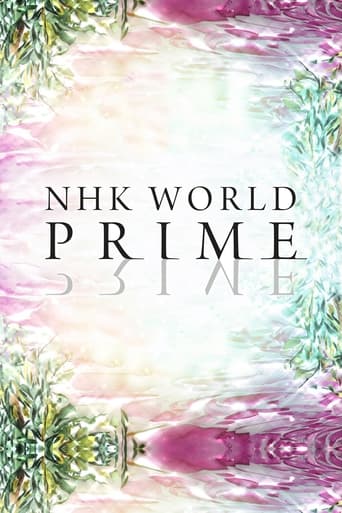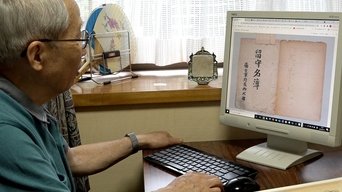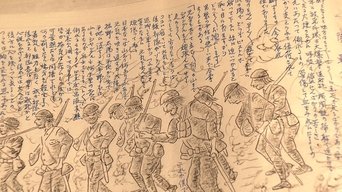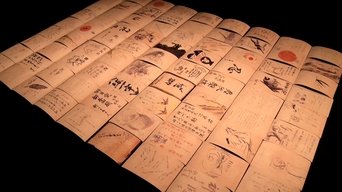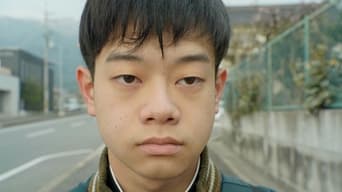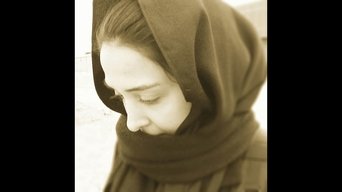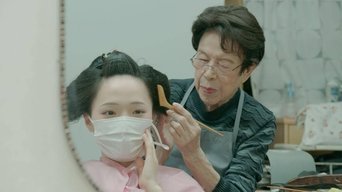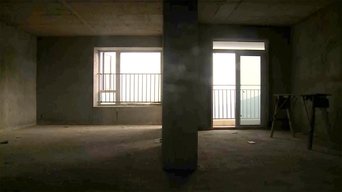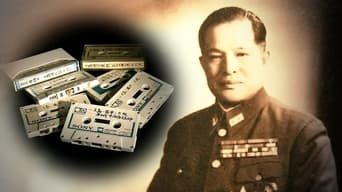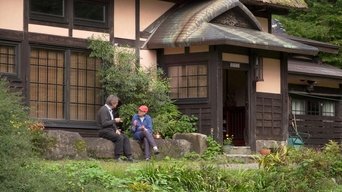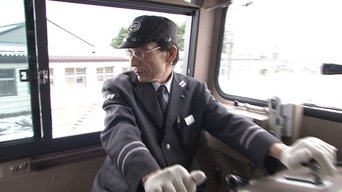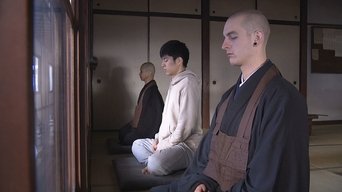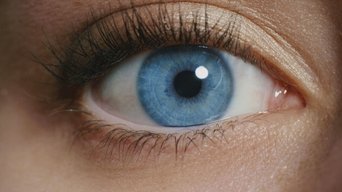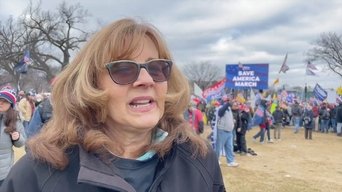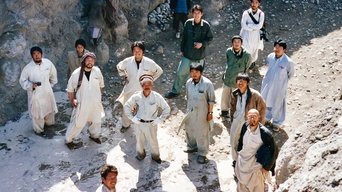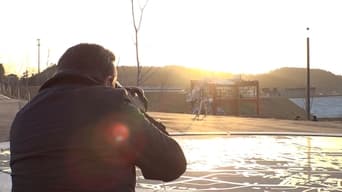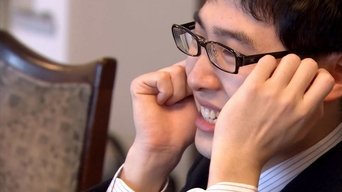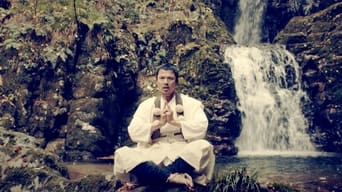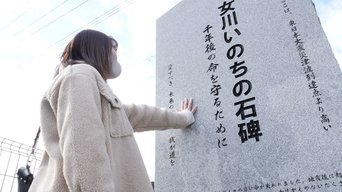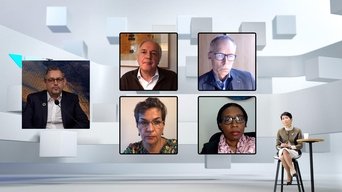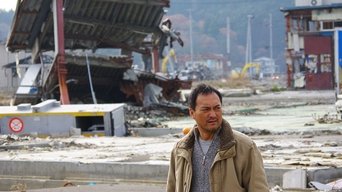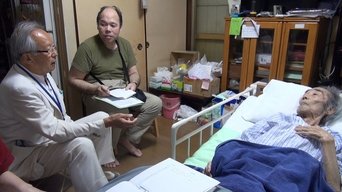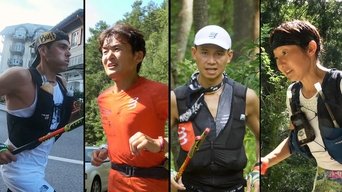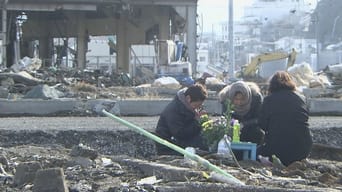NHK WORLD PRIME Season 5
NHK WORLD PRIME brings you a world of mainly documentaries, and more. Tune in to see special select programs on all sorts of topics and genres.
With 30 Day Free Trial!
NHK WORLD PRIME
2017NHK WORLD PRIME brings you a world of mainly documentaries, and more. Tune in to see special select programs on all sorts of topics and genres.
Watch Trailer
NHK WORLD PRIME Season 5 Full Episode Guide
As the coronavirus affects people the world over, the newfound attention on viruses has brought historical events related to infectious disease and the Pacific War to light. During the war, Japanese soldiers engaged in a fierce land battle. While the fighting itself was intense, it is said that 60% of their forces were lost to starvation and disease. To combat infection, the Japanese military set up the Southern Army Epidemic Prevention and Water Supply Department. Japan's monopoly on the wonder drug quinine gave them an initial advantage over the United States in the fight against malaria, but they soon found themselves in a difficult situation. Other infectious diseases were becoming rampant. A vaccine was desperately needed, but Japan's harsh vaccine development process resulted in the deaths of many Indonesians. The grim reality of the Department's activities has been revealed via new documents and testimonies.
As the coronavirus affects people the world over, the newfound attention on viruses has brought historical events related to infectious disease and the Pacific War to light. During the war, Japanese soldiers engaged in a fierce land battle. While the fighting itself was intense, it is said that 60% of their forces were lost to starvation and disease. To combat infection, the Japanese military set up the Southern Army Epidemic Prevention and Water Supply Department. Japan's monopoly on the wonder drug quinine gave them an initial advantage over the United States in the fight against malaria, but they soon found themselves in a difficult situation. Other infectious diseases were becoming rampant. A vaccine was desperately needed, but Japan's harsh vaccine development process resulted in the deaths of many Indonesians. The grim reality of the Department's activities has been revealed via new documents and testimonies.
In the waning days of World War II, Japan and the US fought a fierce battle on the island of Luzon in the Philippines. In the aftermath, an American soldier picked up a Japanese soldier's message book. It was a memento, full of words of encouragement and drawings by the soldier's friends. However, it contained only his last name, Kondo, making it impossible to tell who it belonged to. Now, by using clues found within the book, we attempt to learn who Kondo was.
A diverse student body thrives at a middle school in western Japan known for its inclusive education. Some have disabilities, while others are coping with family issues. Guided by its eccentric, guitar-playing principal, the school empowers the students to be themselves. But how does this unique experience prepare them for high school? One student, Yuji, introduces us to his classmates and guides us through an eventful 6 months before graduation.
Actor Sahel Rosa was 4 when she became an orphan in war-torn Iran. After losing everything, she settled in Japan with her foster mother, Flora, who lovingly raised her despite their extreme hardships. Years later, Flora is stricken with cancer. It prompts Sahel to embark on a journey of self-discovery in Iraq, Bangladesh and her homeland. The experience not only helps her forge lasting bonds with other young victims of misfortune, but also find the answers she's been seeking most of her life.
Kyoto Prefecture's entertainment districts, called Kagai, are famous for the young maiko girls who live and work there. The maiko serve guests and entertain with high-quality performances of Japanese traditional arts. Yamanaka Emiko, age 92, has been putting maiko's hair up in their unique styles for half a century. She is like a grandmother to the young maiko. In the hour or so they sit and get their hair tied up, the girls talk about what's on their minds and share their innermost feelings. As the coronavirus raged on in early 2021, the Kagai districts were forced into a predicament. This documentary features no narration, and the conversations between Yamanaka and the maiko acutely portray the struggles they face under the current situation.
Witness the tears, laughter and true history of Japanese-Brazilians. Japan has seen a sharp rise in foreign workers, starting with the Japanese-Brazilians who came some 30 years ago. How did Japanese society appear in the eyes of these immigrants who traveled from the other side of the globe? Issey Ogata, one of Japan's most celebrated actors both at home and abroad, presents a solo performance based on true stories of apartment life, factory work and long lines at the payphone in a Japanese-Brazilian housing complex. Written by the eminent screenwriter Kankuro Kudo, the show was performed and recorded publicly before an audience that included immigrants who were interviewed.
A curious sight has emerged in the economically flourishing cities of China: Apartment buildings in which construction halts midway. Locals refer to them as "ghost castles." Residents of one such building in Wuhan live in rooms without water or electricity, struggling under the financial weight of repaying the mortgage for an unfinished home. This program examines the shadow behind real estate development through the turmoil faced by the residents who have become victims of a ghost castle.
NHK has been given access to startling audiotapes that provide a new perspective on the maneuvering carried out by Japan's wartime ambassador to Germany, Oshima Hiroshi, to bring the 2 countries into alignment, spelling catastrophe for his homeland.
There exists in rural Niigata Prefecture a collection of traditional Kominka homes that have been renovated to create what is known as the "Miracle Village." Join us as we spend the summer months with the couple behind the renewed vigor of this community, German architect Karl and his wife Tina. By renovating deteriorating vacant homes into beautiful habitations, they have attracted new people to the village, including families with young children. Both long-term residents and new transplants revel in the abundant nature of the village's environment. The charming interiors of the refurbished Kominka fuse Japanese and Western aesthetics, while the gardens that surround them flow with water from local springs. Tina's delicious dishes feature another area highlight: homegrown vegetables. This is summer in the Miracle Village.
The March 2011 earthquake and tsunami in northeastern Japan disrupted supplies of gasoline to many communities causing huge shortages of this vital fuel. A dedicated team of train engineers in Fukushima Prefecture stepped in to help out during the crisis. Some sections of track were unelectrified, so they decided to use old locomotives. The team was made up of engineers nearing retirement and relative beginners. But they came together to tackle a host of problems. This is a story about bravery and hope. (Originally broadcast as a standalone documentary under its own title on April 18, 2021)
Seek nothing, just sit. This is the zen practice pursued at Antaiji, a Soto school zen temple hidden deep in the mountains of northern Hyogo Prefecture. Residents, including several non-Japanese from abroad, engage in 1,800 hours of zazen sitting meditation per year and lead the self-sufficient lifestyle that is the zen ideal. Growing their own food, engaging in other hard physical labor, and sitting long hours in meditation to clear their minds of idle thoughts, they follow a rigorous practice focused on self-understanding. Among them are young men who question the meaning of life and experience deep distress. What answers will they find? This program follows daily temple practice over the course of a year.
Myopia, or nearsightedness, is a global problem. The World Health Organization is sounding the alarm. In Japan, more and more reports show that myopia is increasingly serious among children, and that it continues to worsen when the children grow up. The latest research shows that myopia increases the risk of eye disorders such as cataracts and glaucoma. It also reveals a correlation with depression, dementia and other conditions that have no obvious connection with the eyes. This documentary investigates what is happening to our eyes, and how we should change our lifestyles to protect them.
The January attack on the US Capitol shocked the world. In the crowd that day was retired teacher Jennifer Marler protesting that "Our voices are not being heard." In the midst of the pandemic, divisiveness has accelerated, rocking the foundation of democracy. What is at the root of people's discontent and anger? We interviewed a father and daughter who clash over immigration policy and the income gap, and a woman who spread QAnon conspiracy theories on the Internet. Social scientists weigh in on the question of where the world is headed.
Under his motto, "shine a light on a small corner of the world," Dr. Nakamura Tetsu devoted his life to aiding the people of Afghanistan, until he was shot to death there in December 2019. For decades, he treated patients and built clinics to provide ongoing care to underserved people. When devastating droughts hit the country, he launched projects to build irrigation canals. Assisting the doctor's efforts were about one hundred young Japanese, who the doctor referred to as "workers." Some came after suffering setbacks in Japan. Others arrived with a vision of making a difference in the world. In this program, they reflect on how their time with Nakamura changed their lives, and how the doctor's voice reverberates in their hearts still today.
After the massive earthquake of March 11, 2011 struck his hometown Minamisanriku, photographer Sato Shinichi quickly evacuated to high ground with nothing but his camera. A tsunami of unprecedented scale would soon claim the lives of many of his fellow residents. In its aftermath he created a photographic record of what followed. Some 300,000 images in all. 10 years later, we peer through his lens to discover the despair and regret as well as the hope and will to recover of his fellow survivors.
In 2007, an unknown Japanese youth with severe autism wrote a book of essays in Japanese titled "The Reason I Jump." Authored by Naoki Higashida, it reveals the inner heart of a person with autism and has become an international bestseller translated into over 20 languages. This success is due to author David Mitchell, who has an autistic son. Having had experience living in Japan, David could read the book in Japanese and felt that his own son was speaking to him through Naoki's words, providing insight into such behaviors as head banging and uncontrolled vocalization. He translated the essays into English to help other families around the world who grapple with autism. In March 2014, David visited Naoki in Japan, where they had a moving encounter. This is the story of international hope engendered by interaction between a Japanese youth with autism and a famous English author. (Originally broadcast as part of the "NHK Documentary" series in 2014 [exact date unknown])
It's said that victims of war die a second time if their remains aren't returned to their families. This is the case for over one million Japanese nationals who were killed during World War II. And recent reporting has revealed serious flaws in the government's repatriation efforts. The award-winning 2019 program and related reporting by NHK triggered a change in government policy. The English version is edited to reflect this development.
The itinerant monk Enku traversed Japan in the 17th century, carving religious sculptures along the way. More than 5,300 distinct statues have been accredited to him to date. Enku is an enigma, but successive findings in recent years have added pieces to the puzzle. One discovery provides more perspective on his elusive early life. What is the significance of the mirror and paper fragments secreted within a wooden statue he carved? New research sheds light on Enku's life and inner workings.
Following the March 2011 accident at TEPCO's Fukushima Daiichi Nuclear Power Plant, everyone within a 20km area was ordered to evacuate. Matsumura Naoto alone stayed put. For 10 years, he has taken care of animals abandoned by those who left. Only a few people have since returned, but the reconstruction is in full swing. Matsumura's home is changing beyond recognition. In Fukushima Monologue, we hear his story. It gives us a chance to reflect on resilience, and what is truly important.
Ever since a massive earthquake and tsunami struck northeastern Japan in 2011, NHK WORLD-JAPAN has been following the lives of children from the disaster area. In "Generation 3.11" we follow their progress a decade on. Some are working to ensure the tragedy is never forgotten. Others are finding ways to help their hometowns flourish once again.
The global commons - our forests, oceans, climate and biodiversity - belong to all who dwell on Earth. And they are facing a crisis. Without major changes over the next decade, their destruction will be irreversible, leading to more abnormal weather and deadlier pandemics. What must be done to ensure our planet remains livable? The Tokyo Forum 2020 brings together the world's foremost thinkers to explore green investment, new business opportunities, and the movement for change in Africa.
On March 11, 2011, Japan was rocked by the Great East Japan Earthquake that tragically claimed the lives of more than 15,000 people. Since then, Actor Ken Watanabe has repeatedly visited the area, met more than 20,000 people, and heard their stories. Watanabe eventually opened a café in Kesennuma, a port city in Miyagi Prefecture, and has been working to help people connect and network throughout the disaster areas. NHK documentary crews have continuously followed Watanabe on his visits to the region and have produced TV specials to mark the first, second and fifth anniversaries of the disaster. For the 10th anniversary, he returns again, and visits with a variety of people and finds out they have had surprising changes in their lives. Discover the stories that Ken Watanabe reveals through his compassionate view over the past 10 years, and learn where people now stand on their way to recovery from the catastrophic disaster.
Dr. Oichiro Kobori (82) cares for dying patients at their homes. Many live with middle-aged and older children who are cut off from society. One man in his 50s, whose father has terminal cancer, hasn't worked since he was young and has psychological problems. Under Dr. Kobori's guidance, the son learns to care for his father and slowly becomes more engaged with the world around him. Follow the two-year journey as Dr. Kobori and his team help patients and families find comfort at the end of life.
In a year when countless sporting events were canceled, an unprecedented long-distance race was born: "UTMB for the planet." Online participants ran a set distance at places around the world. Top pros from Ultra-Trail du Mont-Blanc and world-class runners from Japan were among those involved in the intense challenge. Watch passionate runners bring the world together, at a time when the pandemic has kept people apart.
After the mega-tsunami hit Japan in 2011, survivors who'd lost everything struggled to recover. Many people lost not only their homes, but loved ones and livelihoods as well. Beloved traditions were in danger of disappearing. Rumors of radioactive crops devastated farms and fisheries. And many residents feared that those who'd been forced to evacuate would never return. Follow their year-long effort to rebuild their communities with exclusive footage filmed at the center of the disaster.
Using footage shot at the center of the March 2011 Great East Japan Earthquake and tsunami, we bring you a story of horror and heroism during one of history's worst catastrophes. Vast areas along Japan's Pacific coast were devastated. Entire communities were washed away and residents were forced to evacuate. An accident at the Fukushima Daiichi Nuclear Power Plant created a radioactive no-man's-land. But in the days that followed, amid the chaos and confusion, countless people sprang into action to assist victims and search for survivors.
Free Trial Channels
Seasons



